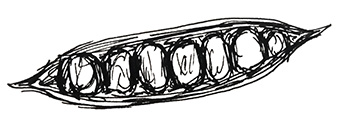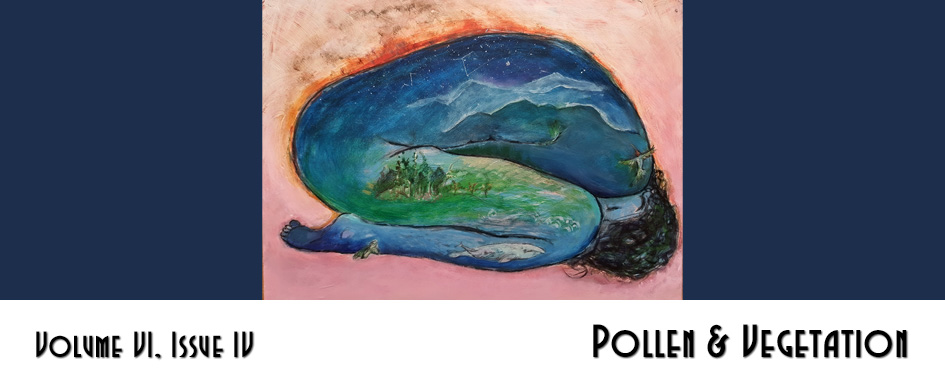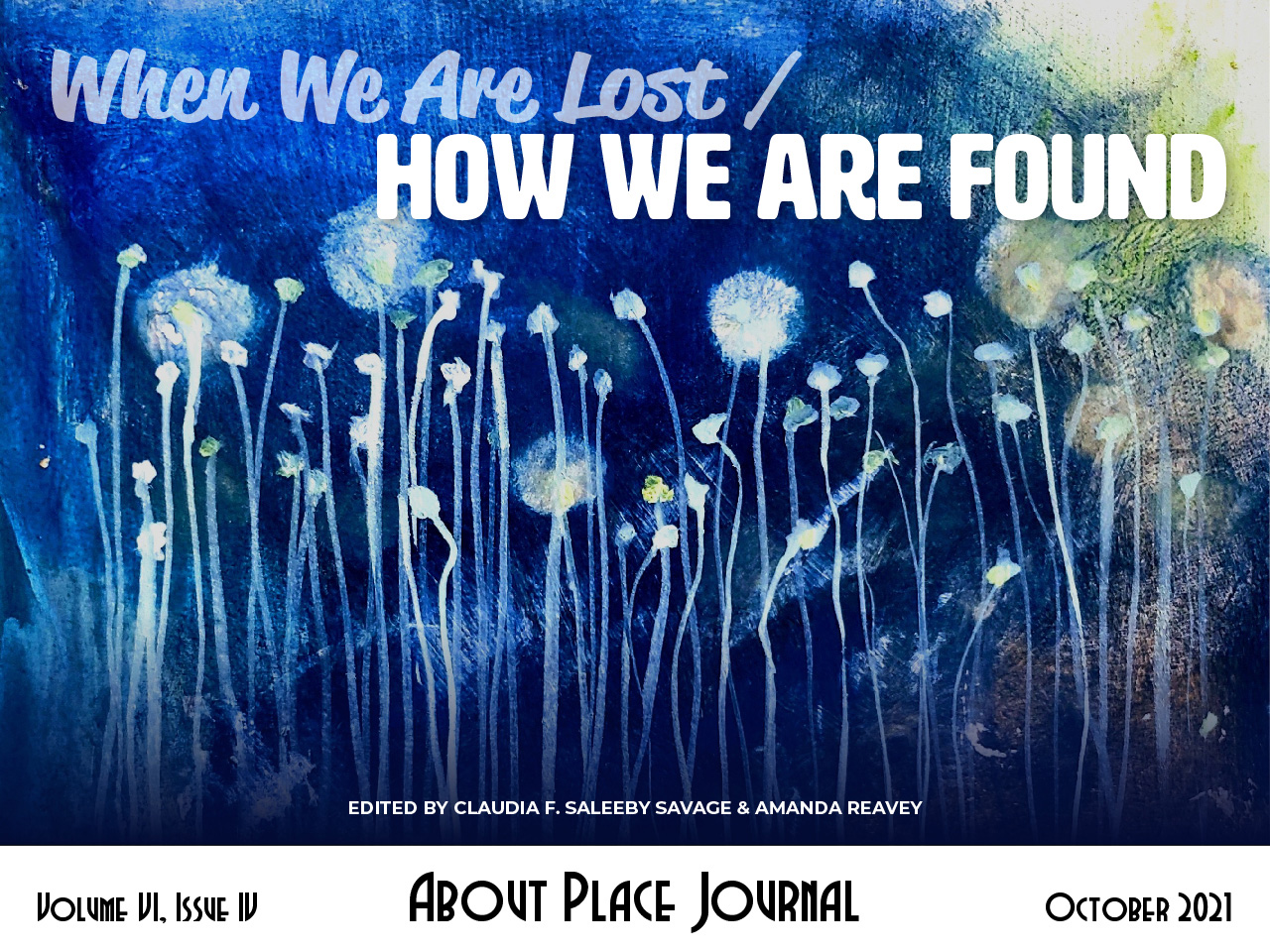![]()
I carry my garden with me every step of this life. It is my home, my soul, my place of spirit: “God said, ‘See, I have given you every plant yielding seed that is upon the face of all the earth, and every tree with seed in its fruit; you shall have them for food’” (Genesis 1.29). Food for the body and for the soul. Creation. In the garden of Eden, God created woman from Adam’s rib – one, err, heck of a seed. And in that garden, Adam, Eve, and the snake found knowledge and a whole new world. Yet the garden is a place of creation beyond any religion, beyond any god. The garden of creation lives in window sills, in backyards, in pots in small apartments, in fields of untouched land. It is within every soul that has ever wondered at the taste of a sun-kissed tomato – even within those who lean more towards ketchup or barbeque sauce found on shelves rather than on stems. The garden keeps us alive – in body and soul. Without growth, there would be no life.

When I was four, my mother told me we could plant seeds together. She had a packet of sunflowers – grey mammoth. I could plant them anywhere. What freedom. I spun in a circle of delight, throwing them in abandon, joy, and wonder. When my spinning came to a close, I saw my mother. She looked perplexed. Anywhere hadn’t meant anywhere. Turns out a seed needs soil.

A seed requires soil, sun, water, time. And hope. A seed is a thing of hope.

www.seedsofhope.org : “Seeds of Hope is a non-profit, non-political, humanitarian aid organization that has been planting hope in Jericho and Jerusalem for the last 10 years.”
www.seedsofhopela.org : “Seeds of Hope is the food justice ministry of the Episcopal Diocese of Los Angeles working to ensure equal, affordable access to healthy, nutritious food in L.A.”
www.seedsofhope.international : “The mission of Seeds of Hope is to restore communities and prevent young people from drug and alcohol addiction, gang violence, sex trafficking/exploitation, …”

I love all plants, but I have a special obsession over vegetables. First, I plant the seed, then I check back constantly until I spy the smallest green shoot just edging up over the dirt. Once, I came home late at night after being gone for two weeks. I found my carrot seedlings glowing in the light of the flashlight. There’s watering throughout – from start to finish in dry Los Angeles. Occasionally, fertilization. Mostly a lot of watching. Some weeding. And then, finally, the magic. Something appears, matures, and it’s time. There is no gift like that of a harvest. One year of exceptional bounty, my mother and I put on our best dresses for a dinner at my grandmother’s house. We accessorized with sweet peas and a giant basket overflowing with green beans. We were met with joy. A time of growth. A time of harvest.

Even the Greek Gods were enamored with harvest. Homer’s Hymn To Demeter reports, “Everyone marveled at the bewitching sight [of the narcissus flower], / immortal gods and mortal folk alike: / from its root blossomed a hundred sweetly / scented heads” (10-13).

Yet blooms and harvest season cannot last forever, as the tale of Persephone, daughter of the goddess of harvest Demeter, so clearly tells: “Amazed, [Persephone] stretched out both hands to pick / the charming bloom— and a chasm opened / in the Nysian plain. Out sprang Lord of the Dead, / god of many names, on his immortal horses. / Snatching the unwilling girl, he carried her off / in his golden chariot, as she cried and screamed aloud” (Hymn to Demeter, 15-20).
![]()
A few years after our great harvest, my grandmother and I became ill around the same time – she of cancer, me of we didn’t know what. I was tired all the time. I kept almost fainting. My breath came in choppy gasps, and people told me constantly that I looked like a ghost. People sent my grandmother bouquets and the occasional orchid or bulb – bits of the garden to acknowledge the news, the surgery, the hardship, the love. My mother covered me in flowers. Jasmine and rose petals in the bath, camellias and lavender on my pillow. She fed me nasturtiums and spread quilts for me to lay in rays of sun in the garden. I’ve been ill in cycles ever since. Eventually, I was diagnosed with dysautonomia. Like the garden, I have stretches of growth and stretches of fallow decay. Time in the garden and time confined to rest.

I returned to seeds in my early twenties. I’d lie in my recliner with my compression boots pushing the blood around in my body to aid my circulation, and I’d flip through seed catalogues. I’m very grateful seeds are an economic obsession.

A seed holds so much in such a tiny form. The world’s smallest seed comes from an orchid, the Gomesa crispa. The world’s biggest seed? The Lodoicea maldivica: a coconut – actually, a double coconut. Yet from it grows a tree a hundred times taller. Persephone’s pomegranate seed held a bit more than she expected.
![]()
With a mere seed, Hades tied Persephone to him and the underworld for a third of the year: “He gave her / a honey-sweet pomegranate seed to eat, / secretly slipping it to her, so she would not remain / with holy, dark-robed Demeter forever” (Hymn to Demeter, 371-374). Demeter, responding as my own mother wants to when I am in the underworld of illness, makes the land go fallow whenever her daughter is forced to the underworld: “But golden Demeter / sat there, far away from all the blessed ones, / waiting, wasting away with longing for her daughter…and the earth / sprouted no seed” (Hymn to Demeter, 302-307).
![]()
The gardens just keep growing. They grow up around me. My brothers have wives, have children. I hear them giggle outside my window when I’ve moved back into my parents’ house for help through a health flare. I’d hoped to join them, but I find my vision grows spots of black when I stand, and my tongue is barren of any words but a repeated um, um, um. Instead I lie with my feet propped up in bed, listening to the joy of my nieces eating the peas I planted months ago.

Who planted Persephone’s pomegranate seed? Who tends the fields of Elysium? Why did Gaia comply with Zeus’s desire and plant the narcissus that tempted Persephone to the trap of Hades? Demeter, Goddess of the Harvest, held no sway over the errant blooms? Or knew not yet to fear? Even in death, the garden grows. The plant breaks down, decays to microbes and compost, to renewal. The spirit dances through the fields of Elysium. Then, what? Returns to toil once again on earth? What happens at death? I can’t help but look to the garden. To the seed, the soil, the decay, and the growth. I take comfort in the action of digging, in the faith of a seed, in the wash of water on parched earth. In the feel of the sun dancing lightly over my skin and the symphony of life in the buzzing of pollination. What’s not to be found in the garden, really?

And from the barren winter, the seeds of hope do sprout: “When earth sprouts with every kind of fragrant / flower in spring, out of the misty darkness / [Persephone] will rise again” (Hymn to Demeter, 401-403).

I talk about flowers, how they are both delicate and strong, as I show my niece how to pick the pink jasmine that grows around the stone angel over my grandmother’s ashes in our backyard. You hold the stem tightly below where you want to pick it, and then you pull quick and hard to break the stem. Don’t forget to hold tight. The stem is strong and hard to pick by hand, but my niece, who has a tendency to pull out the whole plant, persists. Be gentle, yet firm, I tell her as we stand in the sun together, feet covered in soil, and gather a bouquet for her grandmother.

Take me to the garden. When my mind grows fuzzy, when my body gets tired, just take me to the garden. Life is overwhelming, I need to sink my hands into the dirt. Life is wonderful, let’s celebrate with flowers. I am hungry – for life, for food. Plant a seed. Pick a flower. Taste the lemon zest pucker of the sorrel leaf. The sticky wash of orange still warm from the sun. Soak it in. Wallow in the wilderness of a garden. Take with us my walker or a quilt, but take me to the garden, and I will grow.
Works Cited:
Rayor, Diane J. The Homeric Hymns: A Translation, with Introduction and Notes, University of California Press, 2014. ProQuest Ebook Central, http://ebookcentral.proquest.com/lib/asulib-ebooks/detail.action?docID=1644383.
Seeds of Hope, www.seedsofhope.org, Accessed April 15, 2021
Seeds of Hope International, www.seedsofhope.international, Accessed April 15, 2021
Seeds of Hope LA, www.seedsofhopela.org, Accessed April 15th, 2021
The New Oxford Annotated Bible, 3rd ed., edited by Marc Z. Brettler et al, Oxford UP, 2001.


